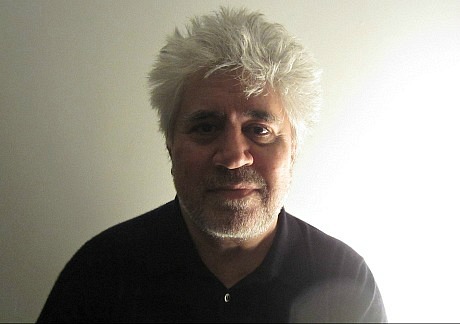The only half-interesting films opening this weekend are Lars von Trier‘s Melancholia and Willliam Monahan‘s London Boulevard. Interesting failures, I mean. Which I’d rather see any day of the week over stuff like The Immortals and Jack and Jill.
Boulevard starts nicely but doesn’t come together. The second half is a mess, but it’s the kind of floundering mess that only a person of talent and vision (i..e, director-writer William Monahan) could create. Melancholia has flashes of brilliance, but is mostly morose and enervated. But it’s “out there,” at least, and that’s always worth a looksee.
Monahan’s film “is more concerned with style than story,” I wrote last month. “It feels oddly misshapen and off-balance at times. It devolves into a bloody body-drop festival about halfway through, the color looks oddly washed out and Monahan uses The Yardbird’s “Heartful of Soul” on the soundtrack three times. It’s telling or curious that Monahan casts himself (or someone who looks an awful lot like him) as a Knightley-stalking paparazzo who stares but never shoots.”
I’ve posted my Cannes Film Festival Melancholia review twice now, but maybe if I re-arrange the graphs it’ll seem fresher.
Melancholia “is a stylishly nutso, half-intriguing, semi-bombastic ensemble piece about despair in the face of eventual ruination. It’s never ‘boring’ but only rarely gripping. It’s Von Trier, after all, but when all is said and done it’s basically a downhill swamp-trudge with tiny little pop-throughs from time to time.
“It’s a morose, meditative in-and-outer that begins stunningly if not ecstatically and concludes…well, as you might expect a film about the end of the world to wrap itself up.
“‘It isn’t about the end of the world but a state of mind,’ Von Trier said during last May’s Cannes press conference. My thinking exactly. But it’s also a more striking thing for where it starts and what it attempts than how it plays.
“And yet I believe it’s the best…make that the gloomiest, most ambitious and craziest film Kirsten Dunst has ever starred in. Way bolder than Eternal Sunshine of the Spotless Mind. It’s kind of La Notte-esque, now that I think about it. Dunst pretty much scowls all through Melancholia and does three nude scenes. What I really mean, I suppose, is that she’s never operated in such a dark, fleshy and grandiose realm.
“I felt elation only in the very beginning, and somewhat at the very end. But otherwise it mostly felt like a meditative slog. It’s not without its intrigues but it lacks tension and a through-line and a story, really, of any kind.
“After the stunning, tableau-like, slow-motion opening, Melancholia gets down to basic business. Situation, circumstance, character, mood.
“Justine (Dunst) is getting married to Michael (Alexander Skarsgard) and her control-freak sister Claire (Charlotte Gainsbourg) has orchestrated the wedding with her husband’s (Keifer Sutherland) money, and not the funds of Dunst’s father (John Hurt). Charlotte Rampling has a couple of scenes as Dunst’s blunt, cynical mom.
“But right after the wedding Justine slips into gloom-head nihilism and suddenly stops being attentive to Skarsgaard and starts meandering and moping around and fucking some guy (Brady Corbet) she barely knows near a golf course sandtrap.
“Did I mention that the Earth is apparently on some kind of collision course with a planet called Melancholia, which has recently emerged from behind the sun? And that no one turns on a TV news station throughout the whole film, and that Gainsbourgh goes online only once?
“The movie is never ‘boring’ but only rarely gripping. It’s Von Trier, after all, but when all is said and done it’s basically a downhill swamp-trudge with tiny little pop-throughs from time to time.
“There’s an overhead tracking shot of two horseback riders galloping down a trail during a foggy morning that’s heartstoppingly beautiful. That plus the beginning I will never, ever forget.
“Death dance, death art…when worlds collide. Von Trier had a mildly intriguing idea here but didn’t know what to do with it, or he perhaps didn’t care to try. All he does is riff about how tradition and togetherness are over and very few of us care. My sense is that Von Trier experimented and jazz-riffed his way through most of the filming.
“All I know is that I feel the way Dunst’s Justine feels during most of the film, and I’m not dealing with the end of the world. Vaguely scared, unsettled…something’s coming.”











